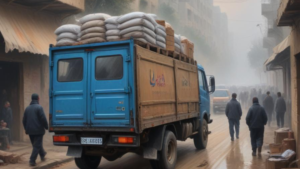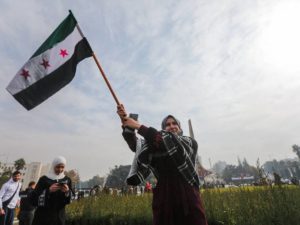A long-awaited shipment of crisp new afghani banknotes finally arrived in Afghanistan on 9 November. This means a glimmer of hope for millions of Afghans struggling with poverty and hunger. Deepening deprivation is linked, in no small part, to external policies that cut international development aid and imposed restrictions that crashed the economy and the banking sector upon the return of the Taliban to Kabul in August 2021.
The banknotes were scheduled to arrive last year during the Ashraf Ghani Administration. They had been ordered in 2020 by Da Afghanistan Bank (DAB), the country’s central bank, but a combination of sanctions, a risk-averse banking sector, and concerns about the viability of the DAB had thwarted the delivery of the new banknotes.
In a cash-based economy, existing banknotes had, literally, been falling apart. Many banknotes, of all denominations, were held together by sellotape. They were often rejected or attributed a lesser value given fears of shopkeepers that they would prove worthless. The poor, especially women, were particularly vulnerable to being short-changed. The 10 billion newly printed afghanis will be welcomed by Afghans as soon as they begin to circulate in shops and markets. Afghanis are vital for local commerce and liquidity. The delivery of the afghanis also represents a boost for the DAB which has, effectively, been cut off from the international financial system, including intermediary banks, since the return of the Islamic Emirate of Afghanistan in August last year.
As Afghans face another harsh winter with less resources than a year ago – debt has surged in tandem with growing unemployment and a significant drop in livelihoods – the ability of the DAB to deliver on one of its core responsibilities is an important indicator that practical politics are possible. It also shows that there are alternatives to policies that make regular Afghan citizens suffer for problems not of their making.
According to Dr. Shah Mehrabi, a member of the DAB’s governing board who has worked tirelessly to have the printed afghanis delivered, the US Treasury’s assurances to banks and companies that they would not be prosecuted for falling foul of sanctions, was instrumental in unblocking the shipment.
Building on recent policy changes, including the creation of a Swiss-based Afghan Fund with – US$3.5 billion – half of the Afghan external reserves arbitrarily held in the US, it is important that mechanisms are established, quickly, to enable the recapitalization of the DAB so that it can deliver on its macro-economic responsibilities. This is critical to revitalizing the Afghan banking and economic sector, the only sustainable way to create jobs and reduce spiralling humanitarian need.
Other measures are, unquestionably, required to address the many issues posed by repressive and discriminatory Taliban policies and practices. But, as winter takes hold, it is vital that Afghans are able to pursue routine commercial transactions – such as the sale and purchase of food and fuel – while also investing in measures that are fundamental to life-saving income-generation activities.
Robust civil society action since earlier this year helped maintain a spotlight on policies that froze the assets of the central bank resulting, effectively, in collective punishment as food insecurity became an existential question for a growing number of Afghan families.
United Against Inhumanity will continue to engage with all concerned stakeholders interested in addressing and mitigating the harm Afghans are made to endure.











